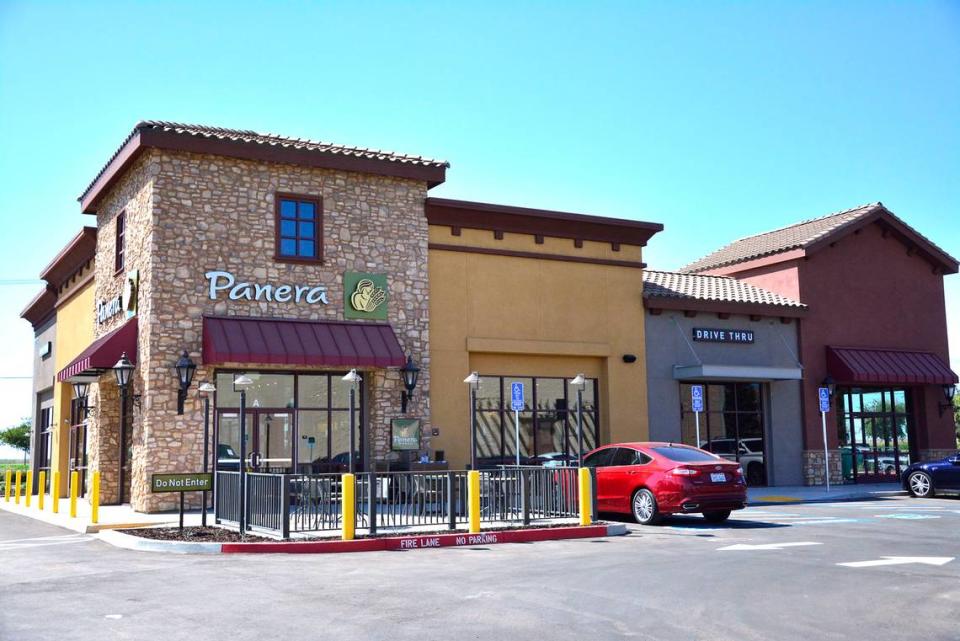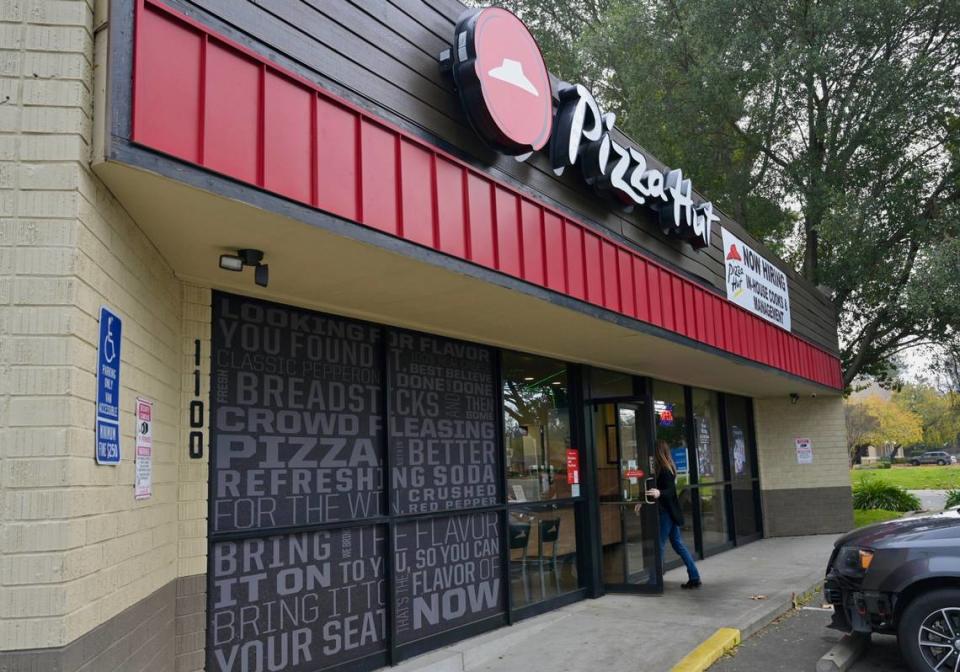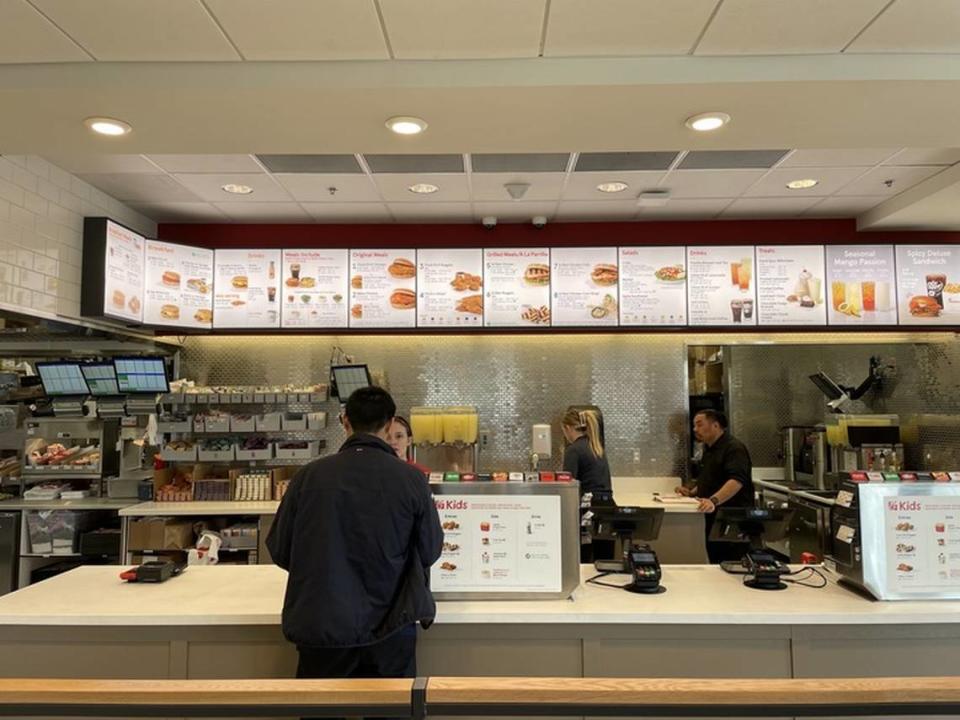California fast food minimum wage just jumped to $20 an hour. Who actually gets it?
Whether someone prepares burgers, blends smoothies or tosses pizza dough, what determines which California fast food workers will be paid $20 an hour?
Assembly Bill 1228 is in effect as of Monday, setting wages for California fast food workers $4 above than statewide minimum. It also creates a Fast Food Council to determine future minimum wage increases and to establish other employment standards at fast food restaurants, according to the Department of Industrial Relations.
We answer these questions about the new California fast food wage law:
Which fast food workers will benefit from the pay increase?
What happened with Panera and the bread-making exemption?
Which fast-food restaurants are exempt from the new law?
Which fast food workers will benefit from the pay increase?
Employees of a “national fast food chain” — with more than 60 establishments across the country offering “limited-service” — will receive the wage increase.
These establishments are characterized as those who use “standardized options for decor, marketing, packaging, products, and services,” the bill states. It covers “fast food restaurant employees,” regardless of whether they are employed by the national brand or a franchisee.
They typically serve food and drinks for immediate consumption either on-site or to-go, with limited or no table service. This includes McDonald’s and Pizza Hut, which announced it anticipates laying off over 1,000 delivery drivers as a result of the new wages.
In an email statement, Joseph Bryant, executive vice president for the Service Employees International Union, said livable wages “should be a priority for corporate fast-food companies.”
Those who opposed the new minimum wage law have voiced concerns that Californians would have to pay more for these services.
In a financial analysis conducted by the Roosevelt Institute — a nonprofit organization focused on corporate and public power, labor, wages, and the economics of race and gender inequality — concluded that the fast food industry’s “profit margins provide sufficient room to absorb higher wage costs.”
Bryant used the term “scare tactics” when addressing the threats of price increases and job cuts.
“Corporations need to pay their fair share and provide their operators with the resources they need to pay their workers a living wage without cutting jobs or passing the cost to consumers,” Bryant said.
The Los Angeles Times reported last week that Starbucks, McDonald’s, Chipotle and other chains planned to raise prices due to the wage increase.

What to know about Panera and the bread-making exemption
A fast food restaurant that “operates a bakery that produces for sale on the establishment’s premises bread,” as of Sept. 15, 2023, will be exempt from the new wage law, according to the bill.
“This exemption applies only where the establishment produces for sale bread as a stand-alone menu item, and does not apply if the bread is available for sale solely as part of another menu item,” the bill states. In other words, it does not include eateries that sell bread as part of a burger, for example.
“Producing bread includes making the dough (typically, flour, water, and yeast) and baking it,” an 18-item FAQ from the department stated. “Baking pre-made dough, i.e., dough that was mixed or prepared at another location, does not constitute “producing” bread at the establishment where the bread is sold.”
In other words, franchises that make their own bread will not be required to pay their employees the new minimum wage starting April 1.
Though Bloomberg News, which first reported on the topic, suggested this specific exemption could apply to restaurants such as Panera, Paris Baguette and Great Harvest Bread Co., it remains unclear whether those companies, or any others with more than 60 establishments, produce bread entirely on-site.
After Bloomberg reported that Panera franchise owner Greg Flynn, a generous donor to Gov. Gavin Newsom, lobbied for the exemption,
many Republicans called the exemption a “pay to play” move by labor and the governor. and as it appeared suggested that Panera Bread would be one of the major national chains to benefit.
However, Newsom’s team has since said Panera is not exempt. Flynn has also said that his 24 California Panera franchises will pay the new $20 minimum wage to employees.

Other exemptions to new fast food wage law
Last Monday, Newsom signed Assembly Bill 610 into law, which will exempt fast food restaurants located within “airports, hotels, event centers, theme parks, museums, and certain other locations, as prescribed” from the new fast food wage law.
Fast food restaurants located within a “grocery establishment” are also exempt from the new law, according to the Department of Industrial Relations.
A “grocery establishment” in California is characterized as a retail store that is over 15,000 square feet, primarily sells food for off-site consumption and sells other “household supplies or other products … secondary to the primary purpose of food sales.”
The establishment must earn more than 50% of its gross income from the sale of food for offsite consumption and must employ the individuals working in the restaurant, the department says.
If a Starbucks is located within a Safeway bigger than 15,000 square feet and employs the individuals working the coffee stand, the employees would not get the new wages.
What about a fast food restaurant inside of another store that is not a grocery store?
Employers are not exempt from the new minimum wage law for fast food restaurants located inside stores that earn less than 50% of their gross income from food sales.
You’d be covered only for the hours you work in the fast food restaurant, not in other tasks like stocking merchandise shelves, according to the Department of Industrial Relations.

The Bee’s Andrew Sheeler contributed to this story.
What do you want to know about life in Sacramento? Ask our service journalism team your top-of-mind questions in the module below or email servicejournalists@sacbee.com.

